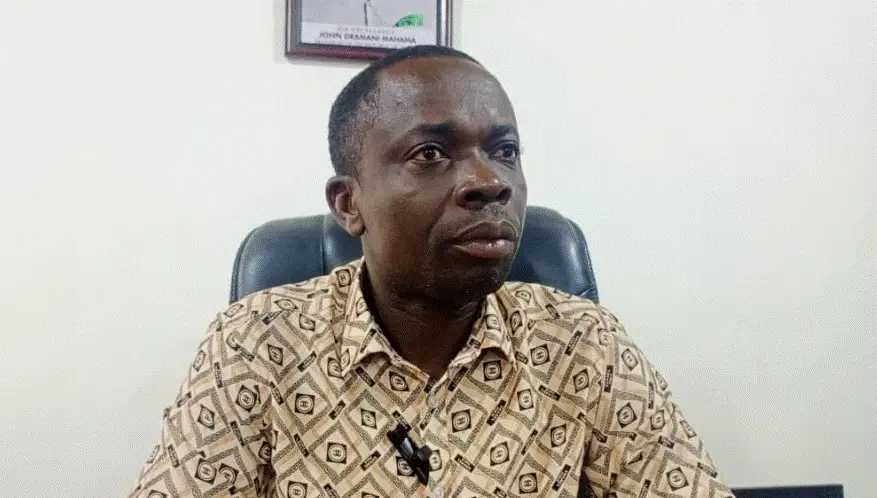The District Chief Executive (DCE) for Twifo Atti-Morkwa in the Central Region, Isaac Yawson, is calling for a nationwide ban on the importation of chanfang machines—equipment widely used in illegal mining, locally known as galamsey.
In an interview with Onua News, Mr. Yawson insisted that halting the influx of chanfang equipment would significantly disrupt illegal mining operations.
“If we ban the importation of the chanfang machine, the galamsey activities will stop,” he stated, describing the machinery as the primary tool enabling the destruction of Ghana’s water bodies.
While clarifying his stance, he noted that his proposal does not target all mining equipment. “When the Chinese arrived and began using the chanfang on our water bodies, we didn’t initially understand its purpose. Later, we realised their activities were destroying our rivers. The machine has multiple functions, but in this context, it’s primarily used for galamsey,” he explained.
Mr. Yawson proposed a five-year moratorium on chanfang imports, arguing that the machines are poorly made, break down easily, and are central to the resurgence of illegal mining whenever security personnel withdraw from affected areas. “The machine is not durable and even when repaired, it quickly develops faults again. The only sustainable way to combat this is to stop its importation entirely,” he said.
He commended the government and security agencies for their efforts in combating illegal mining but acknowledged that the challenge resurfaces once enforcement agencies pull out. He stressed that a ban would be a lasting solution.
According to him, the district’s stance is not against lawful mining. Rather, it seeks to curb environmentally destructive practices. He revealed that the District Security Council has been actively engaging with young people involved in illegal mining, particularly along the Pra River, resulting in a decline in such activities.
Sanitation Improvements
Mr. Yawson also spoke on the district’s long-standing sanitation issues. He said he has initiated collaboration with Zoomlion to clear the only refuse dump in the area, which had been left unattended for years. The clean-up, he said, has greatly improved the town’s sanitation situation.
Education Infrastructure
On education, Mr. Yawson highlighted widespread infrastructure challenges in basic schools. Following a recent tour of local communities, he observed severe deficits and pledged to work with the Central Regional Education Directorate to address the situation. He said he plans to write to GETFund and use part of the District Assembly Common Fund to launch school infrastructure projects.
Rural Electrification Plans
Approximately 29 communities within the district remain without electricity. Mr. Yawson described the lack of power as a major obstacle to local economic development. He disclosed plans to engage the Ministry of Energy to extend the national grid to these underserved areas.
Road Network Commitments
Mr. Yawson acknowledged poor road infrastructure across the district but expressed optimism following a recent commitment by President Mahama. He cited plans to continue the Kasoa–Winneba Junction road to Cape Coast as part of efforts to improve critical transport links in the region.
Healthcare Concerns
The DCE also touched on healthcare, revealing that recent challenges with electricity at the district hospital have been resolved through his intervention. However, a surprise visit to the facility uncovered staffing shortages and a lack of vehicles. He intends to seek assistance from the Ministry of Health and the Ghana Health Service.
He added that the hospital relies on roughly 40 casual workers, a situation that is straining its internally generated funds. Steps are being taken to address this and improve health service delivery in the district.


